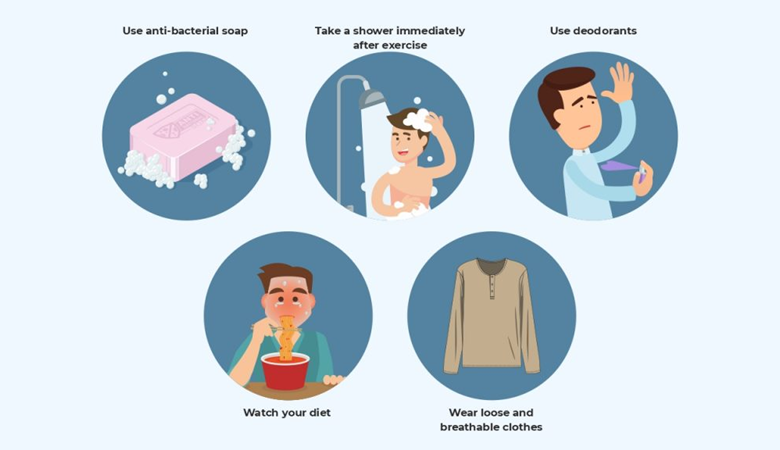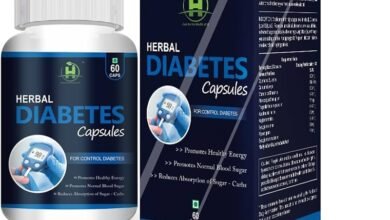What causes body odor and what can you do to prevent it ?

News Mania Desk / Piyal Chatterjee / 3rd November 2024
Sweat that has come into contact with microorganisms on your skin produces body odor. Sweat doesn’t smell by itself, but it does when it combines with the microorganisms on your skin. Body odor might have an onion-like, sour, tangy, or sweet scent. Your body odor is not always affected by how much you perspire. For this reason, a person may not perspire but still have an unpleasant body odor. On the other hand, someone may perspire a lot without smelling. This is due to the fact that body odor is not caused by perspiration per se, but rather by the bacteria that are present on your skin and the way they interact with it.
Sweat glands release fluids onto the surface of your skin, which is known as sweating. Sweat is secreted straight to the skin’s surface by eccrine glands. Sweat aids in controlling body temperature and cooling your skin as it evaporates. It doesn’t emit any scent. Sweat evaporating from your skin has a cooling impact when your body temperature rises as a result of physical activity or heat. Most of your body, including your palms and soles, is covered in eccrine glands.
Your hair follicles receive the opening of apocrine glands. The tube-like structure that holds your hair in place is called a hair follicle. Apocrine glands are located in your armpits and groin. When sweat from these glands comes into contact with bacteria on your skin, it can smell. Young children don’t have body odor since apocrine glands don’t begin to function until puberty.
Sweating is a normal bodily function, but when it comes into contact with your skin, some items we eat, our personal hygiene habits, or our genetic makeup might cause it to smell awful. A medical problem may be indicated by changes in your body odor or sweating patterns.
Sweat and bacteria on your skin combine to produce body odor. Bacteria are normally present on our skin. Sweating can produce odors when the water, salt, and fat combine with these bacteria. The smell may be unpleasant, pleasant, or nonexistent. Body odor can be influenced by a variety of factors, including hormones, drugs, and the foods you eat. Excessive perspiration is a symptom of hyperhidrosis. Although the eccrine sweat glands are frequently the source of the greatest discomfort from sweaty palms and feet, people with this ailment may be more prone to body odor since they perspire a lot.
Every time you perspire, you run the risk of creating an offensive body odor. Bad body odor is more likely to affect certain persons than others.
Factors influencing body odor include diet, as sulfur-containing foods like garlic and onions can be excreted through sweat, affecting its smell. Hormonal changes, such as those during puberty, menstruation, or stress, increase apocrine sweat production, heightening odor. Medical conditions like hyperhidrosis, diabetes, and liver or kidney disease can alter sweat composition, making body odor more noticeable. Poor hygiene allows bacteria to build up, intensifying the smell, while certain medications and supplements, such as some antidepressants and vitamin B, can also impact sweat and odor. Effective management of body odor involves maintaining regular hygiene, using antibacterial soaps, wearing breathable fabrics, and being mindful of diet and medications that might contribute to changes in sweat composition.
Treating body odor effectively involves maintaining good hygiene, managing sweat, and addressing potential dietary or health factors. Regularly showering with antibacterial soap reduces bacteria on the skin, minimizing odor. Focusing on areas with many sweat glands, like the armpits and groin, helps control bacterial buildup. Applying antiperspirants or deodorants, especially those containing aluminum chloride, can reduce sweat production and mask odors. Wearing breathable, moisture-wicking fabrics like cotton and avoiding synthetic materials allows sweat to evaporate, keeping skin drier. Diet also plays a role—avoiding strong-smelling foods like garlic, onions, and spicy dishes may help reduce odor. Drinking plenty of water aids in flushing out toxins that contribute to odor. For those with persistent odor issues, natural remedies like applying diluted apple cider vinegar, witch hazel, or baking soda can help balance the skin’s pH and reduce bacteria. Addressing underlying health issues, such as hormonal imbalances, hyperhidrosis, or diabetes, with medical advice can also be crucial. In severe cases, consulting a dermatologist for prescription treatments, like clinical-strength antiperspirants or even Botox injections for excessive sweating, may provide additional support.






